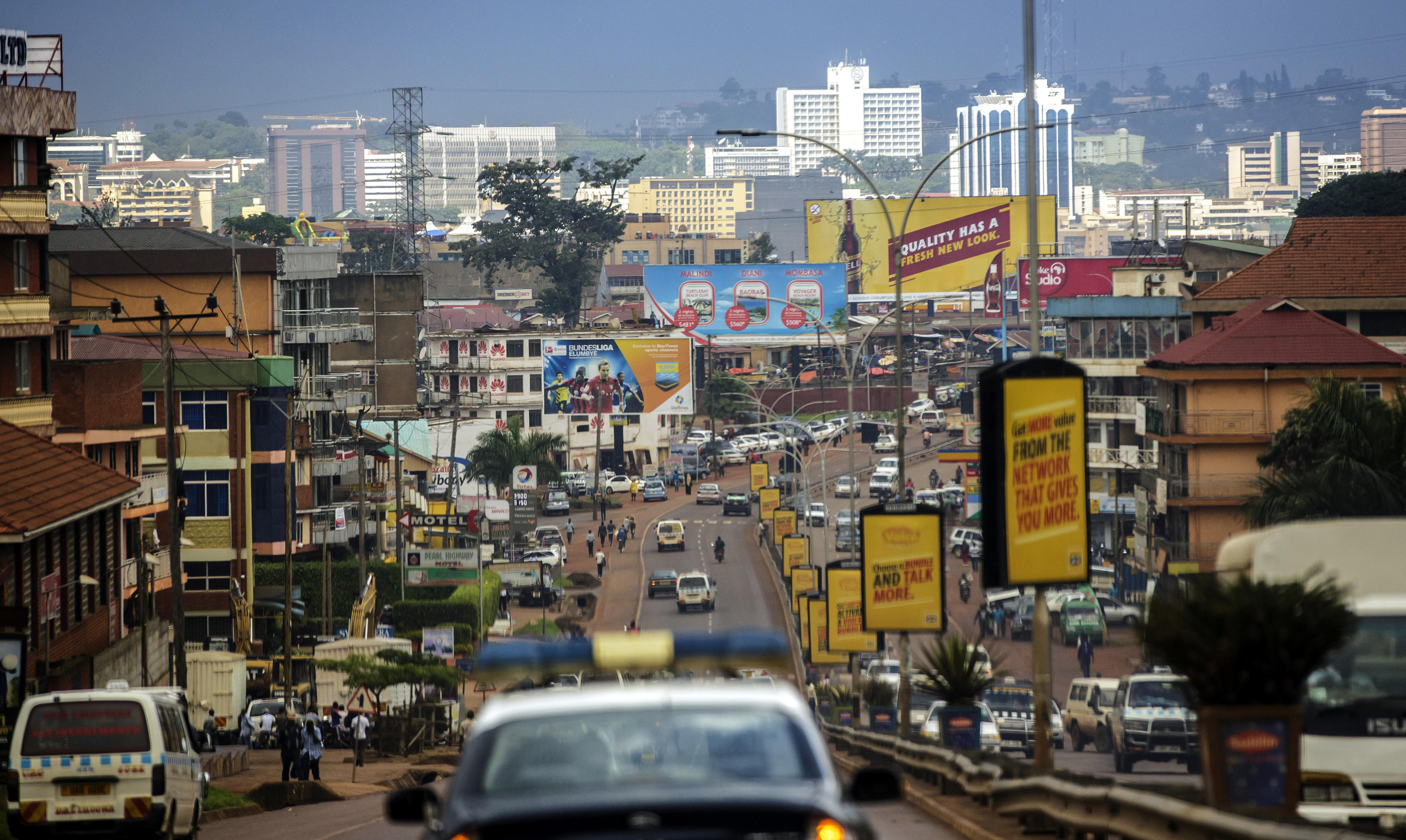View of Kampala, the capital of Uganda
Copyright© Thomas Trutschel/photothek.net
Political situation
Governance and human rights
President Museveni is increasingly governing the country in an autocratic and repressive manner. The work of the political opposition is being obstructed, especially before elections, and civic space is partly restricted. In order to strengthen good governance and human rights in Uganda, the BMZ is engaged in efforts such as enhancing the capacity of the Uganda Human Rights Commission as a monitoring and complaints body for human rights violations, and strengthening the work of Uganda's supreme audit institution.
Homosexuality is banned in Uganda. While it is legal to identify as homosexual, same-sex sexual acts are a criminal offence. The recent tightening of the ban came after years of controversy over legal provisions. A law to make anti-homosexuality legislation tighter was struck down by the Constitutional Court in 2014. In 2019, the government rejected calls for stricter legislation. However, in early 2023, Parliament took up these demands again. In March and, after some amendments, once more in May 2023, the Ugandan Parliament passed a drastic bill against homosexuality and LGBTIQ+ persons. The President signed the law on 26 May 2023. The law envisages long prison sentences and even the death penalty for homosexual acts. It has met with harsh criticism from other countries, including Germany. Even though the law enjoys broad popular support in Uganda, criticism has also arisen within the country. A group of prominent critics challenged the law in Uganda's Constitutional Court.
In its unanimous decision of 3 April 2024, the Court upheld the anti-homosexuality law, stating that it was constitutional. It only revoked four individual provisions of the law, including the obligation to report homosexuals and the ban on renting premises to homosexual persons. The “promotion of homosexuality” continues to be a crime. The Court also upheld the severe punishments for homosexual acts, from long prison sentences all the way to the death penalty.
Fighting corruption
Action against corruption is another challenge in Uganda. In the Corruption Perceptions Index compiled by Transparency International, Uganda ranked 141st out of the 180 countries evaluated in 2023. However, the government is pursuing efforts to address the issue. It has made a certain amount of progress on transparency and accountability, for example with regard to public financial management reform.
Refugee policy
Uganda has become the number one host country for refugees in East Africa. According to figures from UNHCR, the UN Refugee Agency, some 1.9 million people have found refuge in Uganda.
Uganda's government pursues an extremely liberal policy: refugee status is accorded across the board to refugees from specific countries, including South Sudan; that is, they do not need to apply for asylum individually. They are granted right of residence and the right to work, and they are allowed to move freely throughout the country. In order to enable refugees to live as independently as possible, they are not housed in camps but in settlements. They receive a piece of land and are given access to education and health services.
However, Uganda's host communities are increasingly stretched to breaking point – there is a shortage of available land, municipal infrastructure, and funding for food. All these things are needed if the newcomers are to integrate successfully in economic and social terms. The German Development Ministry is providing targeted support to host communities, thus also contributing towards conflict prevention. As long as host communities share the benefits of refugee assistance, for example in the areas of water and sanitation, energy, education, health, and job creation, they remain open for hosting and integrating refugees. This effect is very evident in Uganda.
As at: 18/04/2024
